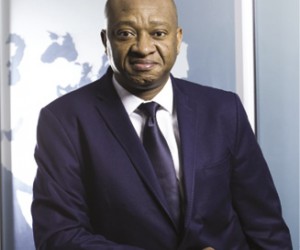According to KPMG’s Oil and Gas sector report 2015, it is estimated that 57% of Africa’s export earnings are derived from hydrocarbons. Untapped proven oil reserves on the continent are estimated to be around 8% of the global total and these reserves are projected to increase as appraisal of new discoveries ensues.
Dr Thabo Kgogo, CEO of SacOil says oil and gas is of critical importance to the African economy. Kgogo believes that “industry activity on the continent has slowed given the reduced oil price however, despite a reduction in activity, Africa continues to grow as governments and players alike plan how they can maximise the continent’s oil and gas resources. Oil and gas companies should use this time, during the downturn, to be innovative in their strategies and plan for the execution of large scale projects to prepare and gear up for growth in Africa once the oil price stabilises.” Large investment in infrastructure will be central to the success of these projects.
Kgogo says, “The current gas infrastructure is not sufficient to meet the growing gas demand on the African continent and the demand will only increase.” According to PWC’s Africa Oil and Gas review, Africa’s gas consumption will increase by 50% over the next 20 years whilst global consumption is only expected to increase by 20%. Studies are underway in various parts of the continent to determine environmental impact and economic viability for everything from pipeline construction to port development and even building new roads.
“The proposed African Continental Free Trade Agreement (CFTA) is set to build on earlier Tripartite FTA negotiations, which will create a free trade area among the 26 countries of the East African Community (EAC), the Common Market for Eastern and Southern Africa (COMESA) and the Southern African Development Community (SADC). Access to economic integration between African countries still faces many difficulties however, notably the readiness of the infrastructure of the Trade Agreement member-countries.
“As an African company, we are interested in finding, producing and trading Africa’s natural energy resources. One challenge faced by most oil and gas companies in Africa, is the movement of our raw materials, field equipment etc. This can largely be attributed to factors such as harsh conditions, unforgiving terrain, bureaucratic red tape (visas, customs) and most importantly, a lack of existing infrastructure.”
He says the CFTA does not include a direct plan to establish this much-needed infrastructure, but if African businesses want to take full advantage thereof, the necessary infrastructure is required. It is hoped that the CFTA will be viewed by the manufacturing and construction sectors as a call to action. Trade agreements have a two-way flow by design. While cross-border trade may initially appear to only flow one way, the benefits to all parties do realise over time.
For example: as much as South Africa is looking to procure natural gas from countries like Mozambique, Tanzania and Botswana at the best possible prices and with minimal customs and excise costs and administration - South African Independent Power Producers (IPP) would also like to supply electricity cross-border back to neighbouring countries. The treaty is expected to ease the movement of goods across member countries and it could not have come at a more appropriate time for the gas industry.
In Kgogo’s opinion, over the next 10 years, the industry expects to see a lot of exciting activity with plans for the construction of gas to power plants, storage facilities, pipelines and distribution networks to take advantage of the natural gas boom.
“This is good news for the engineering, manufacturing and steel industries. Since the government has opened up to the concept of Independent Power Producers, we can expect many plants and storage facilities to be built along the East Coast of South Africa, for instance. The movement of so much gas and associated products also calls for an improved transport network between African countries. This should give us the expectation of an abundance of infrastructure projects in the near future” he concludes.










